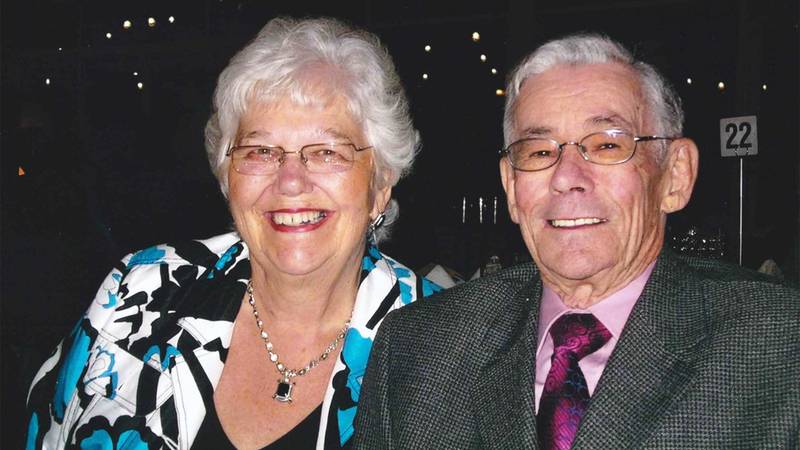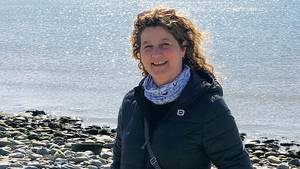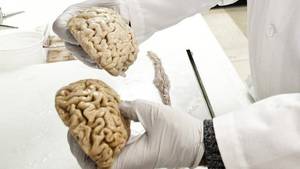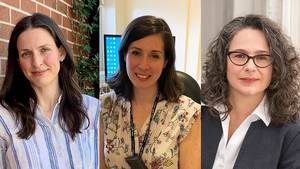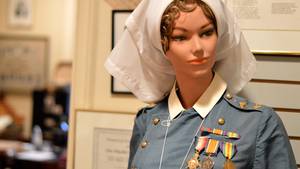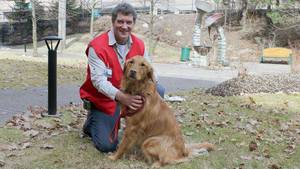Cathy White made a perfectly English cup of tea for her visitor, Dr. Graeme Rocker, and watched him sink comfortably into her couch.
After some pleasant chit-chat, they got down to business. Her husband, Tony, had chronic obstructive pulmonary disease (COPD) and suffered its painful impact, which ranges from chest pains to uncomfortable breathing. Tony had lived with COPD for a decade and had spent the last six years on oxygen.
For a couple married more than 50 years, much of that spent in Africa, England, Alberta and Quebec, it changed everything. Cathy went from wife to caregiver as Tony lost his independence.
Prior to Dr Rocker’s visit the Whites had made many trips to the hospital, a physical challenge for Tony, who struggled to understand COPD. One day after Tony had a rough bout of pneumonia, Cathy called the QEII Health Sciences Centre’s respirology department. The receptionist told her about a new program called INSPIRED: Implementing a Novel and Supportive Outreach Program of Individualized Care for patients and families living with REspiratory Disease.
“When I got a call from the INSPIRED team, it was like a life-saver. A miracle,” Cathy says.
The next day, a member of the INSPIRED team came to their home. That led to Dr. Rocker’s house call. From that day onward, the Whites never had to go to hospital. “Even on Tony’s last day, when he was really bad, I still had him at home. I called one of the team members and she was here within 20 minutes.”
Dr. Rocker, QEII respirologist and medical director of the INSPIRED COPD Outreach Program TM, says that’s exactly why they created the program. In a home visit, “you get a completely different sense of who this person is and what they need than you would in an outpatient visit.”
COPD is a common, progressive, incurable, but treatable lung condition affecting an estimated 800,000 Canadians. At the QEII, COPD is second only to chest pain among medical reasons for emergency department visits. Prior to INSPIRED, these patients accounted for approximately 300 admissions a year, with an average stay of 10 days, costing $3-million annually in inpatient bed costs.
The program replaces frantic hospital visits with orderly house calls. Usually the first visits are done by respiratory therapists who provide patients and families with the knowledge they need to manage their illness at home, followed by visits from an advance care planning facilitator. Dr. Cathy Simpson, who filled this role in early stages of INSPIRED, explains that “we try to find out how the disease is affecting their life overall. We know COPD affects pretty much every aspect of their life.”
Team members provide answers to questions about the disease and its progression, which brings patients a sense of ease. “It’s an isolating, orphan disease. It takes away your breath. These people end up housebound, and then their caregivers are housebound,” Dr. Simpson says. “There’s a lot of worry about what dying is going to look like with this disease.”
The team also helps patients with advance care planning, so difficult decisions don’t have to be made in the heat of the moment. Dr. Simpson says many patients find the practical psychosocial/spiritual support offered through the program helps immensely.
Dr. Rocker agrees. “There is an enormous amount of existential distress experienced both by the patient and those that they live with as the disease became more advanced.”
Dr. Rocker says INSPIRED means patients, like Tony White, make fewer costly and unnecessary hospital visits and 38 per cent of patients who’ve died within the context of the program have been able to do so at home in accordance with their wishes, including Tony, three-and-a-half years ago.
“The QEII's INSPIRED team was always there for us,” Cathy says.
Today, the QEII's INSPIRED team has much to celebrate. Founded in 2010, INSPIRED has grown into a nationwide program with primary financial support from the Canadian Foundation for Healthcare Improvement (CFHI). The team was awarded a $100,000 QEII Foundation TRIC grant in 2014-2015 and has received an additional $20,000 from the Foundation to support the clinical aspects of the local program. Over the next 18 months, an additional 39 sites across Canada will welcome 2,300 new patients to the program.

